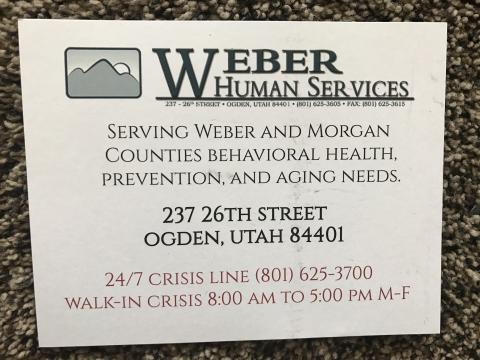
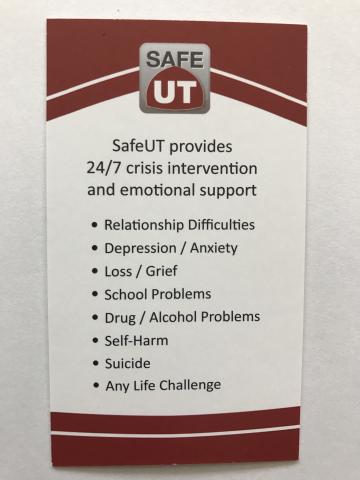
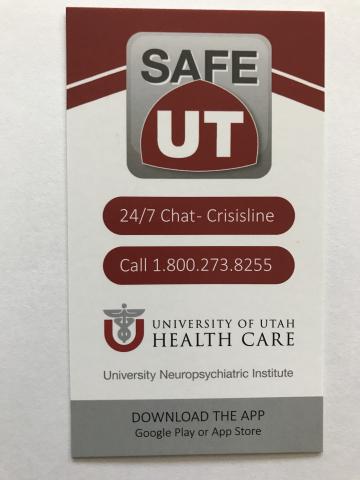
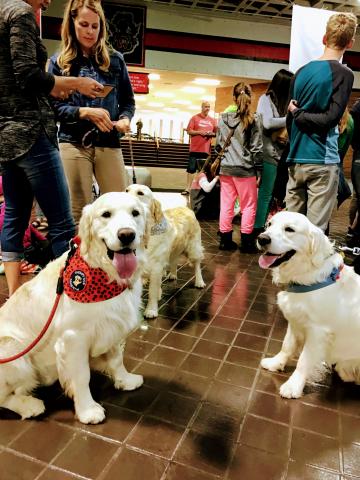

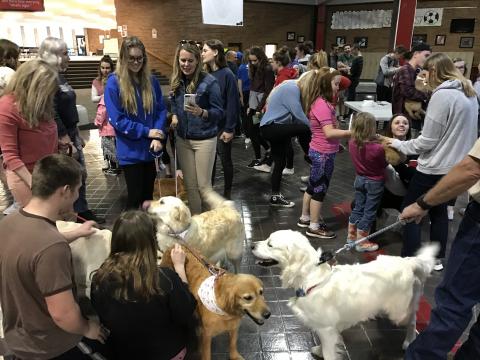
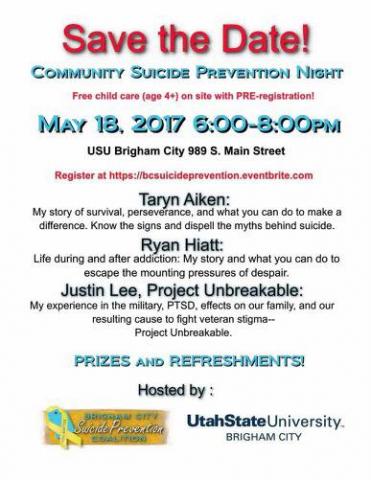
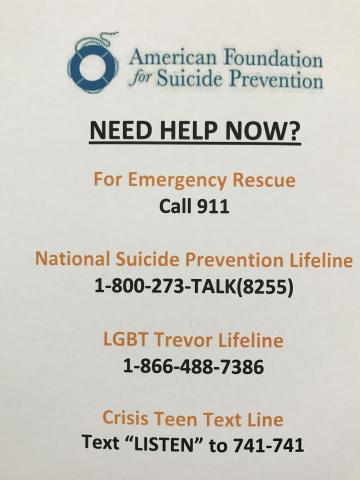
Weber High School hosted a family event in March to look for ways to help prevent suicide in our community. Representatives from various community providers were present to give valuable resources.
First off, Ammon Fawson, from Endeavor Clinic, spoke with students and families in the auditorium regarding loss and grief from suicide. He said, “There is a lot of anger that these losses are still happening. There are feelings of fear and hopelessness, doubt, and worry.”
Fawson also adds, “Anybody who cares about anybody, who goes through the grief process, has a natural response…the compassionate thing we want to do is make people feel better. Sometimes the hardest thing to do is step down and to recognize that what this person is feeling is rooted firmly in who they are and the connection to the person they are grieving for.”
Those who are available to offer support from State and National Resources include:
· Cathy Davis from the Youth Protection and Suicide Prevention, Utah State Board of Education
· Andrea Hood: Suicide Prevention Coordinator, Utah Department of Health
· Tori Yeates: UNI, SAFE UT
· Taryn Aiken: American Foundation for Suicide Prevention (AFSP)
· National Alliance for the Mentally Ill (NAMI)
County Resources:
· Weber Human Services: Therapist
· Weber Human Services, Weber Coalition: Lauren Anderson, Community Health Educator
· Kristy Jones: NUHOPE Northern Utah Hold On, Persuade and Empower (HOPE)
· Weber Morgan/Health Department
Local Therapists:
Ammon Fawson: Endeavor Clinic
Melinda Barker: Ataraxis
David Johnson: Ogden Center for Change
Katie Johnson: Ogden Center for Change
Nikolas Call: Tree of Life Counseling
Aloha Behavioral
Ammon Fawson from Endeavor Clinic
Fawson also tells us, “None of us gets to satisfy our connection to others for a pain-free life experience. It’s not natural. If we can rally as a community, rally as families, friends, and look to those who are going through a grief and loss process. Provide them an opportunity to connect with you. A safe place for them to feel angry or sad—not just today or next week but a month, a year, 2 years and even 5 years.”
Therapy dogs were also present at the Weber High Suicide Prevention Night on March 28, 2017. These dogs consisted Golden Retrievers, Golden Labradors and others. They, along with their owners and trainers, come into the behavior units of the high schools to give comfort and kindness. One reason why the therapy dogs are so helpful is they allow the students to forget their concerns and worries for a while and focus on feeling happy as they pet a friendly dog.
In the American Foundation for Suicide Prevention we are told of the suicide warning signs which include: TALK, BEHAVIOR, and MOOD.
For example, if a person talks about:
· Killing themselves
· Being a burden to others
· Feeling hopeless
If their behavior includes:
· Increased use of alcohol or drugs
· Withdrawing from activities
· Sleeping too little or too much
If their mood shows:
· Depression
· Humiliation
· Loss of Interest
Some people are at more risk for suicide than others. People having health factors such as mental health conditions including: Bipolar Disorder, depression, Schizophrenia and psychosis, are more at risk.
Other factors include:
Environmental Factors
· Access to Lethal means including firearms and drugs
· Prolonged stress such as harassment or bullying
· Exposure to another person’s suicide or graphic accounts of suicide
Historical Factors
· Previous suicide attempts
· Family history of suicide
· Abuse as a child
IF YOU’RE CONCERNED ABOUT SOMEONE:
Listen to their story. Let them know you care. Ask directly about suicide, calmly and without judgement. Show understanding and take their concerns seriously. Let them know their life matters to you. That one conversation could save a life.
If A PERSON SAYS THEY ARE THINKING ABOUT SUICIDE
Take the person seriously: someone considering suicide is experiencing a life-threatening health crisis and may not believe they can be helped.
IF YOU’RE STRUGGLING
Don’t wait for someone to reach out. Seek mental health treatment, or tell your clinician about your suicidal thoughts.